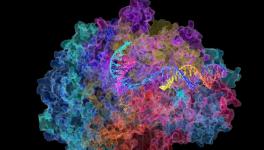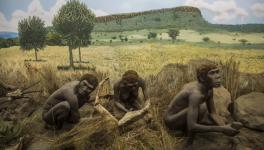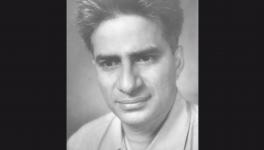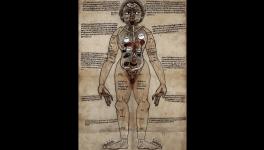Swedish Svante Paabo Wins Nobel for Medicine for Discoveries Involving Human Evolution
Paabo found that gene transfer had occurred from now-extinct closely related species to modern humans
The Swedish researcher Svante Paabo won this year's Nobel Prize for Physiology or Medicine for his research into how human beings evolved, Sweden's Karolinska Institute announced on Monday.
Paabo was born in Stockholm, Sweden in 1955 and performed his prize-winning studies at the University of Munich and at the Max Planck Institute for Evolutionary Anthropology in Leipzig, Germany.
Paabo sequenced the genome of the Neanderthal and also discovered the previously unknown hominin Denisova. His work showed the genomic changes that came to differentiate humans and their closest cousins. He also showed that both Neanderthals and Denisovans contributed genes that still exist in modern humans.
"By revealing genetic differences that distinguish all living humans from extinct hominins, his discoveries provide the basis for exploring what makes us uniquely human," the Nobel committee said.
No scientist stands alone
It has become uncommon for the Nobel Committee to award prizes to individuals alone, but the 2022 Prize for Physiology or Medicine has indeed gone to just one person. But no scientist works alone these days — Paabo heads a laboratory, which his colleague and close collaborator, Hugo Zeberg, described as "inspiring" to DW.
"The scientific questions we are tackling... we live with them," said Zeberg by phone moments after Paabo's win. "It's not like we leave the lab at 5 o'clock and we stop thinking about these questions. We are totally engaged with them. It is a very inspiring environment."
Their work has not only taught scientists more about the Neanderthals, but it is also credited with having helped modern medicine during the COVID pandemic.
"From the genome of Neanderthals, we can learn what defines modern humans. One of our big findings was that a major risk factor for severe COVID is a gene variant that has come down from the Neanderthals," said Zeberg. "And we believe a million people have died [with COVID] because of that gene variant."
Without Paabo's sequencing the Neanderthal genome, "we wouldn't know that today," said Zeberg.
The most prestigious award
The Nobel Prize is considered the most prestigious award in the fields it's presented. In previous years, notable winners in the category of Physiology or Medicine have included Sir Alexander Fleming, Ernst Chain and Sir Howard Florey for their discovery of penicillin and Ronald Ross for his discovery that malaria is spread by mosquitoes.
The science prizes are announced over the first three days in a week of Nobel Prizes, with Physiology and Medicine on Monday, Physics on Tuesday and Chemistry on Wednesday. The Nobel Prizes for Literature, Peace and Economic Sciences follow from Thursday.
David Julius and Ardem Patapoutian won the Medicine prize last year for their work on sensing touch, temperature and pain.
This year's winners receive a cash prize of 10 million Swedish Krona (about €920,000), a Nobel Medal and global recognition. The prizes will be handed out at a gala dinner in December.
Alfred Nobel's legacy
The Nobel Prize for Physiology or Medicine has been awarded 112 times since the prize's first year in 1901. It's gone to 224 scientists, but only 12 women.
Alfred Nobel established the prize in his will before he died in 1896. He left the majority of his money to the establishment of "prizes to those who, during the preceding year, shall have conferred the greatest benefit to mankind" in physics, chemistry, medicine, literature and peace.
Nobel, the inventor of dynamite and military explosives, famously established the prize so he could leave a better legacy after being criticized for "finding ways to kill more people faster than ever before." That's what a journalist wrote in an obituary mistakenly published eight years before Nobel's actual death. The article was erroneously published after the death of one of Alfred Nobel's brothers.
The very first Nobel Prize for medicine was awarded to Emil von Behring in 1903 for his discovery of a diphtheria antitoxin. He was known as the "savior of children" for his work with the disease.
Edited by: Kieran Burke
Get the latest reports & analysis with people's perspective on Protests, movements & deep analytical videos, discussions of the current affairs in your Telegram app. Subscribe to NewsClick's Telegram channel & get Real-Time updates on stories, as they get published on our website.
























